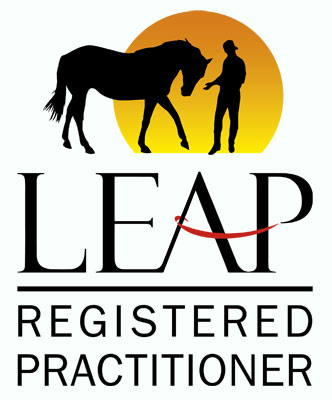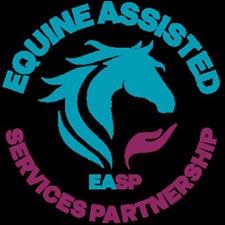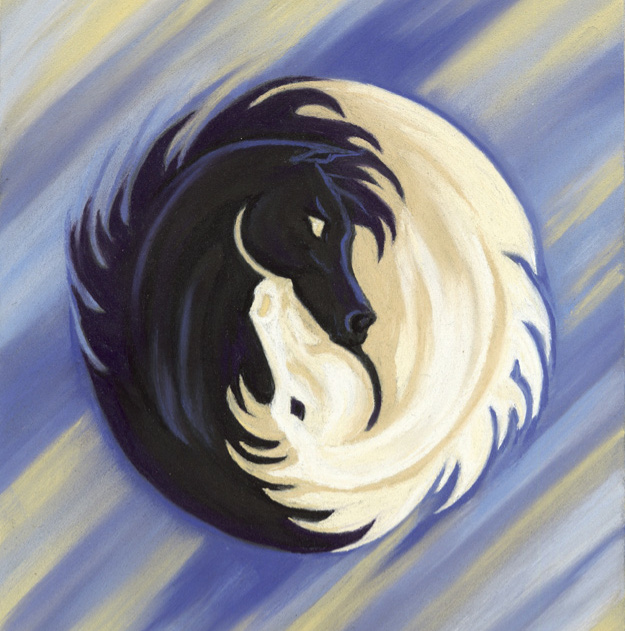
Blog
The Incongruity of Pity and How it is Damaging to our Relationships, including with our Horses
1 May 2018
Key Themes: Relationships; Pity; Victim-Role; Incongruence; Projection; Healing
One of the biggest lessons I received from North Star, my wise gelding, was not to waste any of our time together pitying him.
Right from the beginning when he came to me straight off the race-track after the first 12 years of his life: all ribs and bones, grossly underweight and grossly overly developed in his musculature through inappropriate feed and lack of roughage, as well as clearly exhibiting enormous psychological and emotional problems, he made it crystal clear to me that pity was not welcome in his life. In fact, I got the sense that he felt it was down-right harmful to his recovery and overall well-being.
It took me a little while to cotton on and realise that his pinned ears, walking away and even nipping me were his ways of communicating this to me. I still remember vividly one day when a new assistant was being introduced to him and I was explaining why he couldn’t whinny (he had been Hob-dayed as a youngster in the racing industry). She responded by saying: “Oh, no, poor thing. Why do they do that to them?” North Star promptly responded by reaching over the stable door and tried to nip her. His message was loud and clear: “Don’t pity me. This undermines me and my well-being, and it undermines my true-self who is a wise, powerful being, regardless of all I have endured in my life”.
As our relationship developed, and particularly in his later years, I began to understand more deeply why pitying him was so counter-productive to both him and, ultimately, me too.
To pity someone is inherently incongruent. Why? Because it places the other person or animal in the position of the victim. This stance is itself inherently incongruent as it operates by disempowering the individual. Taking away their ability to be themselves on every level: To speak and act for themselves, to defend themselves, and to be responsible for their own well-being and ultimately, destiny.
Pity is a long way away from feeling compassion and empathy for others. Both of which fuel real connection and deeper intimacy in relationships. Pity does none of these things, in fact, it harms intimacy and connection with others. It only serves to deepen a power imbalance, in my experience.
I can relate this very easily to my relationship with my mother, who likes to keep me in a lower position than her in order to feel secure herself. Thus, she repeatedly pities me, my struggles and lacks in life. I know this because anytime I am doing well and clearly in my power, she stays well away. When I experience her pitying attitude it only serves to try and keep me trapped in a low, victim-like place. She can then “care for me”, in her mind, but I feel only anger and resentment because she is not seeing the real me; nor is she allowing my power to flow. Much as we do with horses when we pity them.
Furthermore, when we are in the victim role - when the archetype of the victim has been activated in us, or we place others in this position through pitying them, we create co-dependency in our relationships, which is both unhealthy and incongruent.
It is the same when it comes to our horses, especially those we own or work with, or maybe want to offer healing to in a professional capacity.
If we regard them in a pitying, “poor them” kind of way, we place them in a very dependant position in relation to us. We position ourselves in the rescuer or healer archetypal role, thereby, giving us considerably more power over them, and deepening their already dependent nature on us as domesticated horses.
When I hear some horse healers or other professionals consistently talk about horses only in the vein of “them needing us to heal or rescue them”, then my red-flags are well and truly alert. This sounds to me like a very big dose of projection, along with, as I’ve said, a need to deepen the horse’s dependency on them as we place ourselves in the role of being their saviour.
We are also neglecting ourselves in this relationship dynamic as we are not paying attention to our own needs, triggers, issues or disowned parts, (this is an inherent component in the act of projection – When instead what we need to do is withdraw the projection and turn our attention back onto ourselves and our needs and feelings. Something the horses tell us to do over and over again).
And when we neglect ourselves in any way in relationships we are also being incongruent and self-destructive, which, in turn, can only ever be destructive to the relationship. So in this sense, to pity others is grossly counter-productive on many levels.
North Star regularly seemed to be telling me that when I or anyone else pitied him that it robbed him of his dignity first and foremost. By placing him back in the position and time in his life when he was utterly controlled, and thus needed to disempower himself through being subservient in order to survive, I wasn’t seeing him for who he really was now, and indeed then too perhaps. Not one to dwell on his past pain and suffering, he very much wanted to live in the here and now as much as possible, and that involved being treated and regarded as a being in his own right. And, crucially, that he was in touch with and in control of his destiny.
He was also very clear in that he didn’t want me to solely focus on his well-being and healing. He regularly conveyed that I should be focusing on my own healing as much as, if not more than, his. Why? Because by me attending to my own needs and healing I brought myself back into alignment with my truth, therefore I was more congruent. And, therefore in a much better position to relate to him. We were truly two equal beings. Not me as his owner and the human in charge of his healing and destiny. But rather two beings in relationship and partnership, each seeking their own healing and each ultimately responsible for themselves. When I felt better in myself, when I attended to my needs and wounds, North was then able to focus on himself and meet me as a partner. He didn’t need to waste valuable energy defending himself from my need to heal him, rescue or overly focus on him. Instead, I was taking care of me, and apart from the very obvious things like ensuring he was fed and watered, he was taking care of himself.
Such equality between people or a human and an animal inherently creates the conditions for each individual’s dignity to rise to the surface. And when we feel dignified we feel full of our own power. Pity robs us of our power, or at least it tries to. But wouldn’t it be better to not have to expend energy defending ourselves from others’ misguided acts of pity?Which, in all honestly, only actually feed and benefit the one giving not the receiver, as it shores up their own lack of self-compassion and power and does little of any real good for the one being pitied.
At the end of the day, to pity others is to be self-serving in an unhealthy way. It is therefore essentially an act of ego, not of heart and certainly not of soul or spirit. When we pity we do not see the other as an equal, powerful being with a soul and destiny of their own. We only see something which can be the recipient of our energy and power; whether they want and need it or not. We see something else to focus on instead of our own pain and suffering. We see only a receptacle for our projections in all their many forms and degrees of intensity. This is nothing short of an abuse of power, in fact.
Ultimately, neither benefits as the giver only briefly benefits, and then not really, as any act which is purely ego-serving is hollow and short-lived and fails to fill-up the actual needs of the person.
So, rather than engaging in pity what we need to do is dig deeper by facing our own fragility and wounding, where we will locate our compassion and empathy and instead bring these to the forefront in all of our relationships and work, particularly if we work with other species in any capacity. This ensures clearer, healither boundaries in our relationships too which is essential for dignity and power to be welcomed. Our horses in particular will thank us greatly for doing so, I can guarantee it.
Angela Dunning, 1st May 2018








